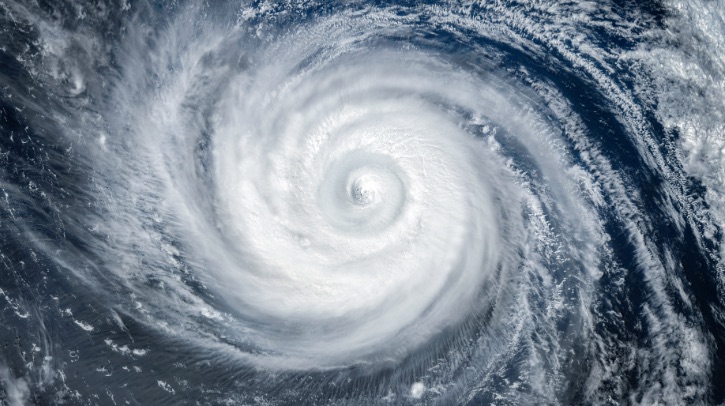Researchers from the Institute of Oceanology of the Chinese Academy of Sciences (IOCAS) have developed a new model for forecasting rapid intensification (RI) of a tropical cyclone (TC), based on ‘contrastive learning’. This study was published in the Proceedings of the National Academy of Sciences (PNAS).
AI-powered forecasting
The new model has two inputs: Input A, a known RI TC sample, and Input B, an unknown sample to be forecasted. It extracts features from both inputs and calculates their distance in a high-dimensional space. If the distance is small, Input B is forecasted as an RI TC; if large, it is classified as a non-RI TC. Each unknown sample is compared with 10 known RI TC samples; if more than five of the comparisons classify it as an RI TC, it is then classified as such.
This study uses satellite imagery alongside atmospheric and oceanic data to balance RI and non-RI TC data. The model learns to differentiate between RI and non-RI TCs by comparing the two inputs during training.
When tested on data from the Northwest Pacific between 2020 and 2021, the method achieved an impressive accuracy of 92.3% and reduced false alarms to 8.9%. Compared with existing techniques, it improved accuracy by 12% and reduced false alarms by a factor of three, representing a major advance in forecasting.
Traditional tropical cyclone prediction methods
According to the team, RI of a TC, defined as a maximum sustained wind increase of at least 13m/s within 24 hours, remains one of the most challenging weather phenomena to forecast because of its unpredictable and destructive nature. The researchers highlighted that although only 5% of TCs experience RI, its sudden and severe development poses significant risks to affected regions.
They also pointed out that traditional forecasting methods, such as numerical weather prediction and statistical approaches, often fail to consider the complex environmental and structural factors driving RI. However, they acknowledged that while artificial intelligence (AI) has been explored as a means to improve RI prediction, most AI techniques have struggled with high false alarm rates and limited reliability.
“This study addresses the challenges of low accuracy and high false alarm rates in RI TC forecasting,” said Prof. Li Xiaofeng, one of the authors of the report. “Our method enhances understanding of these extreme events and supports better defenses against their devastating impacts.”
Although the IOCAS’s new model was initially trained on reanalysis data, the researchers created an operational forecasting scenario by replacing the reanalysis data with ECMWF-IFS numerical model forecast data from 2020 to 2021 as input. The results demonstrated comparable forecasting accuracy, validating the reliability of this approach and confirming its suitability for real-time forecasting scenarios. This capability is expected to enhance early warning systems, thus improving global disaster preparedness.
For more of the top insights into the future of tropical cyclone technology, read Meteorological Technology International’s exclusive feature, How are the latest early warning technologies protecting against devastating hurricanes?, here.



